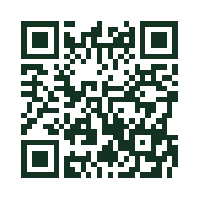Abstract
Unruly learners and disciplinary problems are an intractable part of every teacher’s teaching experience. It appears that, even though most schools have enacted a code of conduct to regulate learner behaviour, this does not always have the desired effect. Disciplinary problems in schools impact negatively on the teaching and learning environment as well as on teachers’ personal and professional well-being and morale. Framed within the context of a biblical worldview, this article narrates the experiences of one teacher who decided to take action towards hope. The situation in her classroom was quite desperate with learners coming to school unprepared and behaving very badly and parents being uninterested in the performance of their children at school. She realised that she could not change the learners or their parents unless she started with herself. In this context, she, as a postgraduate student under the supervision of the co-authors, embarked on an action-research project to promote positive learner behaviour. By collaborating with the learners on a set of classroom rules, engaging in reflective teaching and changing her own behaviour towards the learners, the situation in her classroom improved. Based on her experiences, this article argues that teachers should empower themselves with knowledge and a better understanding of the concept of discipline rather than viewing the classroom as a battlefield. It is important to acknowledge and show respect and appreciation for each learner in his or her own context.Copyright information
- Ownership of copyright in terms of the Work remains with the authors.
- The authors retain the non-exclusive right to do anything they wish with the Work, provided attribution is given to the place and detail of original publication, as set out in the official citation of the Work published in the journal. The retained right specifically includes the right to post the Work on the authors’ or their institutions’ websites or institutional repositories.
Publication and user license
- The authors grant the title owner and the publisher an irrevocable license and first right and perpetual subsequent right to (a) publish, reproduce, distribute, display and store the Work in any form/medium, (b) to translate the Work into other languages, create adaptations, summaries or extracts of the Work or other derivative works based on the Work and exercise all of the rights set forth in (a) above in such translations, adaptations, summaries, extracts and derivative works, (c) to license others to do any or all of the above, and (d) to register the Digital Object Identifier (DOI) for the Definitive Work.
- The authors acknowledge and accept the user licence under which the Work will be published as set out in https://creativecommons.org/licenses/by/4.0/ (Creative Commons Attribution License South Africa)
- The undersigned warrant that they have the authority to license these publication rights and that no portion of the copyright to the Work has been assigned or licensed previously to any other party.
Disclaimer: The publisher, editors and title owner accept no responsibility for any statement made or opinion expressed by any other person in this Work. Consequently, they will not be liable for any loss or damage sustained by any reader as a result of his or her action upon any statement or opinion in this Work.
In cases where a manuscript is NOT accepted for publication by the editorial board, the portions of this agreement regarding the publishing licensing shall be null and void and the authors will be free to submit this manuscript to any other publication for first publication.
Our copyright policies are author-friendly and protect the rights of our authors and publishing partners.

